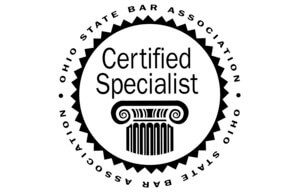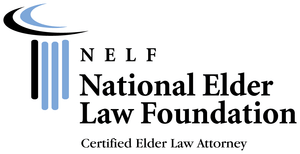Estate Planning and Trusts
Familiarize yourself with basic estate planning and trust concepts, and current tax and probate laws by reading the Frequently-Asked Questions (FAQs). The Articles provide extensive trust, tax, and probate information.
Frequently-Asked Questions
A will may not be the best plan for you and your family - primarily because a will does not avoid probate when you die. A will must be filed with the probate court before it can be enforced. Also, because a will can only go into effect after you die, it provides no protection if you become physically or mentally incapacitated. Therefore a guardianship proceeding with the probate court would be necessary to manage your assets. Fortunately, there is a simple and proven alternative to a will - the revocable living trust. It avoids probate, and lets you keep control of your assets while you are living - even if you become incapacitated - and after you die.
Depending on how much you own when you die, your estate may have to pay estate taxes before your assets can be fully distributed. Estate taxes are different from, and in addition to, probate expenses (which can be avoided with a revocable living trust) and final income taxes (on income you receive in the year you die). Some states also have their own death/inheritance taxes.
How would you like to turn your modest tax-deferred account into millions for your family? Depending on whom you name as beneficiary, you can keep this money growing tax-deferred for not only your and your spouse's lifetimes, but also for your children's or grandchildren's lifetimes. That can turn even a modest inheritance into millions.
A corporate trustee is a bank trust department or trust company. They can help you build, manage and protect your wealth when you put your assets in a trust.
A trust is simply a legal document that lets you reduce unnecessary legal fees, save taxes and keep control over your assets while you are living, if you become physically or mentally incapacitated, and after you die.
When you set up a trust, you need to name someone (a trustee) to manage the assets your trust controls. While you can choose just about any adult, there are very good reasons why you should consider a corporate trustee.
A CRT lets you convert a highly appreciated asset (stock, real estate, etc.) into lifetime income. It reduces your income taxes now and estate taxes when you die, and you pay no capital gains tax when the asset is sold. Plus, it lets you help a charity(ies) that has special meaning to you.
An irrevocable life insurance trust lets you reduce or even eliminate estate taxes, so more of your estate can go to your loved ones. It also gives you more control over your insurance policies and the money that is paid from them.
If you have been named as the successor trustee in someone's living trust, you may be wondering what you are supposed to do. You can relax a bit, because you don't do anything right now. You will only begin to act when the person becomes unable to manage his or her financial affairs due to incapacity, or when he or she dies.
However, it is important that you know ahead of time what your duties and responsibilities will be. These FAQs will help. Let's start with some explanations.
Articles
The State of Ohio has recently stepped into the forefront of states allowing individuals to create their own trust, be the beneficiary of their trust, and protect their assets from nearly all general future creditors. In the past, one had to create expensive and sometimes risky offshore trusts to accomplish this purpose, or more recently create trusts in a few other states, but like the Alaska version, be required to hold assets in that state.
Once you have signed your living trust document, the next step is to change titles and beneficiary designations to your trust. This is called "funding" your living trust. This is probably the most important step in preparing a living trust. If you have signed your living trust document but haven't changed titles and beneficiary designations, you've simply wasted your money. You may have a great trust, but until you fund it, it doesn't control anything - because your living trust can only control the assets you put into it.
People often wonder about the value of using irrevocable trusts in Medicaid planning. Certainly gifting of assets can be done outright, not involving an irrevocable trust. Outright gifts have the advantages of being simple to do with minimal costs involved, including the cost of preparing and recording deeds and the cost of preparing and filing a gift tax return. Many financial institutions have their own documents they use for changing ownership of assets so there are typically no out-of-pocket costs for the transferor
Tired of trying to meet all the rules on traditional tax-deferred saving plans? Consider switching to a Roth IRA. Contributions to a Roth IRA are not tax-deductible. But, unlike a traditional IRA, you don't have to start taking money out (or stop putting money in) at age 70 1/2. And, after five years or age 59 1/2 (whichever is later), distributions to you and your beneficiaries will be income tax-FREE.
Estate taxes must be paid when you die if the net value of your estate (assets less debts) is more than the amount exempt from taxes at that time.
One thing you can do to save estate taxes, whether you are married or single, is start giving away some of your assets now to the people or organizations who will eventually receive them after you die.
If you are single and your net estate (including your life insurance) is more than the federal estate tax exemption ($1 million in 2013), or if you are married and your total net estate is more than two exemptions ($2 million in 2013), an irrevocable life insurance trust can reduce your estate taxes.
A charitable lead trust is, in some ways, similar to a charitable remainder trust. You transfer an asset to the trust, which reduces your taxable estate and saves estate taxes. But with a charitable lead trust, the charity receives the income and your beneficiaries will eventually receive the principal.
Instead of giving all that tax money to Uncle Sam after you die and letting Congress decide how to spend it, you can set up your own charitable foundation, donate your assets to it and keep some control over how the money is spent! (The IRS does have a few restrictions on how the money is used.)
A qualified personal residence trust lets you continue to live in your home but transfer it to your children now so you will save estate taxes when you die.
GRATs and GRUTs have much in common with the qualified personal residence trust. The main difference is that a GRAT or GRUT lets you transfer any asset (not just your home) out of your taxable estate. And, with a GRAT or GRUT, you receive an income, instead of continuing to live in your home, for a set number of years.
A family limited partnership lets you transfer assets like a family business, farm, real estate or stocks to your children now, yet you keep full control. Because you are removing these assets and any future appreciation on them from your taxable estate now, you reduce the amount of estate taxes that will have to be paid after you die. A family limited partnership is especially useful as a preventative measure when real estate or a family business might otherwise have to be liquidated to pay estate taxes.
Because malpractice and liability insurance costs are so high -- and lawsuits so common -- some people have turned to offshore asset protection trusts as a way to protect their assets and still keep control. (Recently, several states including Alaska, Delaware and Utah have changed their laws and now allow similar trusts here in the U.S. These trusts, called domestic asset protection trusts, operate differently from the offshore trusts described here.)
For privacy, some people set up what is called a land trust or a title holding trust, especially for real estate.
If some or all of your estate bypasses your children and goes directly to a grandchild, there could be another tax called the generation skipping transfer tax (GSTT). This can happen intentionally, if you "skip" the living parent (your child) and leave an inheritance directly to your grandchildren.
A qualified domestic trust is the only way your estate will be allowed to use the marital deduction if your spouse is not a U.S. citizen. That's because Uncle Sam doesn't want noncitizen spouses to inherit sizeable estates and then return to their homelands without paying any estate taxes.
While you should start with the general premise that all titles and beneficiary designations should be changed to your living trust, there are a few assets that you may not want in, or cannot be placed into, your living trust. Here are some you may own.
- 401k
- 403b
- a-b-c living trust
- annual tax-free gifts
- asset protection trust
- assets
- beneficiary
- change beneficiary designation
- charitable foundation
- charitable remainder trusts
- charity
- clt
- co-trustee
- corporate trustees
- creditor
- crt
- estate tax exemption
- estate taxes
- family limited partnership
- federal gift tax exemption
- flp
- generation skipping transfer tax
- gift tax
- gifts
- gifts in trust
- grantor retained annuity trust
- grat
- grut
- gstt
- how to reduce estate taxes
- ilit
- incapacity
- incentive stock options
- income tax deduction
- insurance trust
- ira
- irrevocable insurance trust
- irrevocable life insurance trust
- irrevocable trust
- jtwos
- keogh
- land trusts
- life insurance
- life insurance trust
- living trust
- llc
- medicaid
- medicaid planning
- offshore asset protection trust
- ohio legacy trust act
- pension
- portability
- portable estate tax exemption
- power of attorney
- private charitable foundation
- probate
- professional corporations
- profit sharing
- property
- protect assets
- qdot
- qdt
- qprt
- qualified domestic trust
- qualified personal residence trust
- retained unitrust
- revocable living trust
- roth ira
- save on capital gains tax
- save on estate taxes
- save on income taxes
- section 1244 stock
- spousal rollover
- successor trustee
- tax-deferred annuities
- tax-deferred plan
- taxable gift
- taxes
- title
- title holding trust
- trust
- trust assets
- trust income
- trustee
- trusts
- unlimited marital deduction
- will






